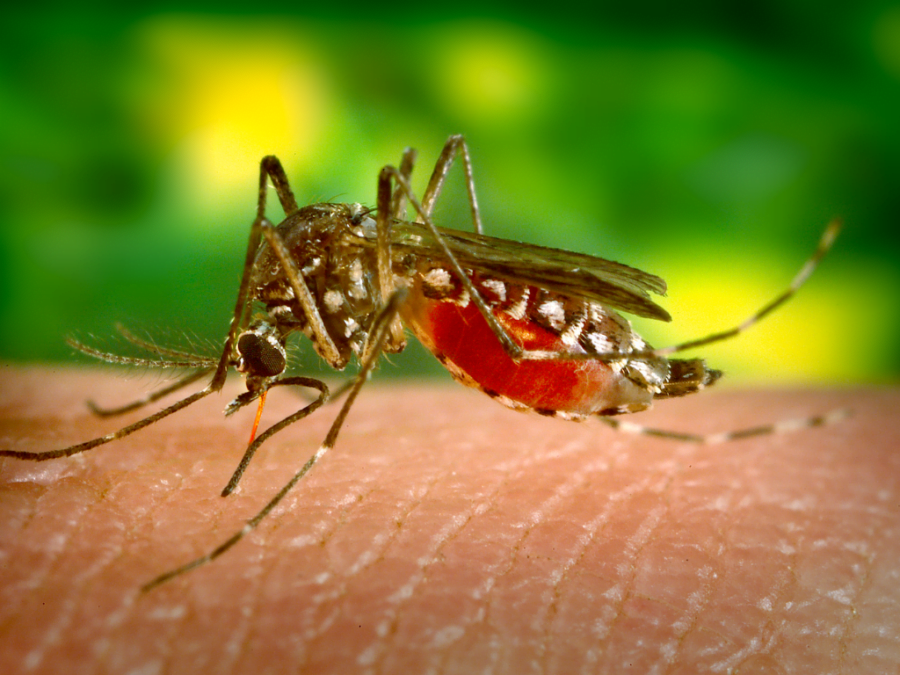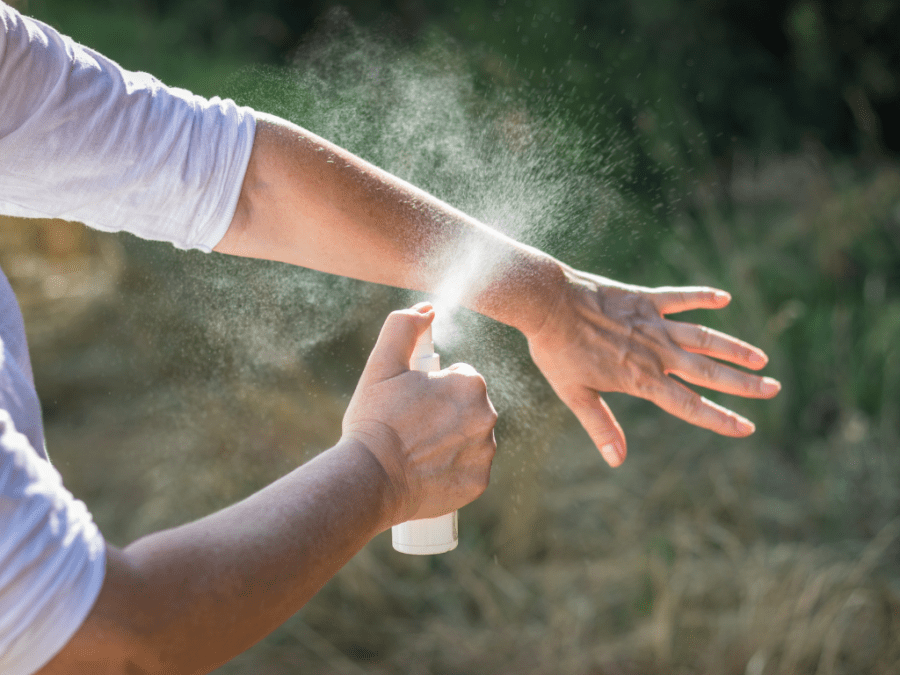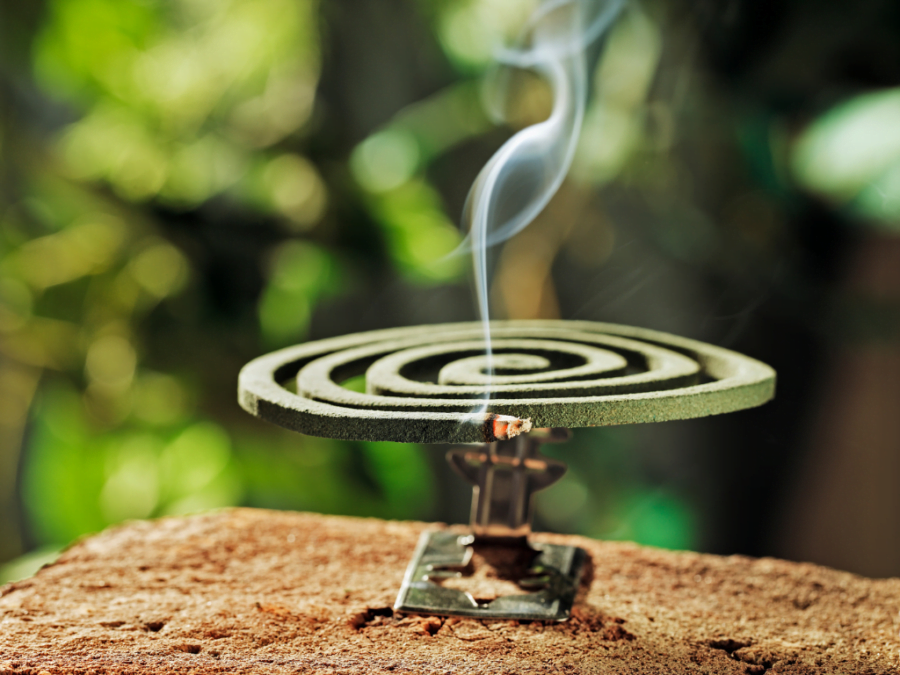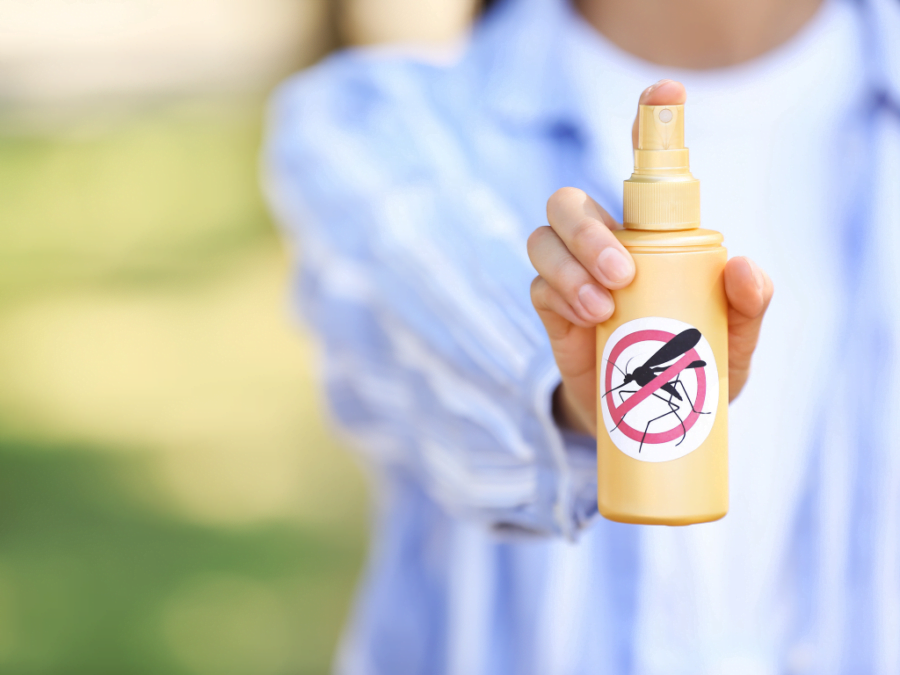Mosquitoes can be irritating and can carry dangerous diseases. Not only do they bite, but they can also transmit diseases like malaria, Zika virus, and dengue fever. While there is no perfect solution to keeping mosquitoes away, using a mosquito repellent is one of the best ways to reduce your chances of getting bitten.
There are many different types of mosquito repellents available on the market today. Some repellents work better than others, so it’s important to figure out which one will work best for you before purchasing one. Regardless of which type of mosquito repellent you choose, it’s important to follow the instructions carefully and use it in accordance with its label directions. Reapply as often as directed, and make sure that you use electric mosquito repellents safely.
Table of Contents
ToggleWhat attracts mosquitoes?

Have you noticed that mosquitoes tend to flock to you more than other people? Are you worried that your child seems to attract a lot of attention from mosquitoes? Researchers have found several possible explanations for why mosquitoes may be attracted to some people more than others. Here are some of them:
- It’s genetic. Scientists have found that attractiveness to mosquitoes may have something to do with our genes.
- It’s in your blood. A study has found that mosquitoes tend to be more attracted to people with certain blood types. Type O blood was found to be especially attractive to mosquitoes.
- It’s your breath. Mosquitoes are attracted to carbon dioxide, which everyone breathes out. However, the more carbon dioxide you exhale, the more attractive you’ll be. The larger your size, the more carbon dioxide you produce.
- You’re pregnant. Another study has found that mosquitoes are especially attracted to pregnant women. This is because pregnant women exhale more carbon dioxide than non-pregnant women, and also typically have higher body heat.
With the help of Supermom’s Free Home Cleaning Set, you’ll be able to keep your home clean and free of pathogens that can make your family sick. Protect your family’s health at no cost in just a few steps.
Ingredients in mosquito repellents
Mosquitoes are a common pest that can be found all over the world. They are known for their ability to transmit diseases like malaria, yellow fever, and dengue fever. To protect yourself from these illnesses, it is important to use mosquito repellents.
You’ll be able to find a variety of types of mosquito repellents on the market. Some of the most popular include sprays, lotions, and wipes. Mosquito coils and patches can also be used to repel mosquitoes. When choosing a mosquito repellent to use for your family, it’s important to consider the ingredients that are in it. Some ingredients aren’t good for babies and toddlers, while others are safer but can be less effective.
DEET
One of the most effective ways to prevent mosquito bites is to use DEET-based repellents. DEET is a chemical that confuses mosquitoes’ senses so they won’t be able to detect you, let alone bite you. It comes in different concentrations, and it’s proven to be highly effective against mosquitoes.
DEET insect repellents have no age restrictions. However, it’s still worth asking your paediatrician if you can safely use it on kids and babies. If you’re pregnant, you should also ask your OBGYN about using DEET repellents. Additionally, DEET should not be applied near your eyes or mouth and should never be ingested.
If you are going to be spending time outdoors where there is a risk of being bitten by mosquitoes – whether that’s at the park, camping, or simply out for a walk – make sure to apply sunscreen first and then put on some DEET-based repellent liberally all over your skin (except for your face). Reapply every few hours as needed.
There are some misgivings about using DEET, but it has been found to be generally safe for use. However, if you’re still hesitant about using it, there are other kinds of insect repellents that you can try.
Picaridin
One of the most effective and long-lasting insect repellents available is picaridin. Picaridin is a man-made substance that was made to resemble a compound produced by pepper plants. Much like DEET, it works by blocking mosquitoes’ ability to sense humans. It’s generally safe to use, though you should also consult your doctor to see if it’s safe for you and your child.
While picaridin is considered to be non-toxic and breaks down before it gets into groundwater, it’s been found to be toxic to fish.
IR3535
Developed by the pharmaceutical company Merck, IR3535 is an ingredient that can be found in insect repellents. It’s considered to be an alternative to DEET, making IR3535 repellents a good choice for those who don’t want to use DEET-based products.
Additionally, this compound is made to be safe for use, even for babies. It’s also been given the green light by both the CDC and the EPA. Even so, it’s still worth consulting your paediatrician if products with IR3535 are safe for your kids. It’s also worth mentioning that IR3535 has been found to be non-toxic to animals and not particularly harmful to the environment.
Oil of lemon eucalyptus (OLE)

If you’re looking for natural or plant-based insect repellents, oil of lemon eucalyptus in particular is worth considering. However, if you want to buy this product, make sure that you don’t confuse it with lemon or eucalyptus oil. It comes from a tree called lemon gum, but the name can make it easy to confuse with other natural oils. Make sure that the product you buy was not derived from the lemon eucalyptus tree instead.
One thing that sets OLE apart is that it’s had more testing compared to other natural insect repellents. However, it hasn’t been tested as much DEET and other synthetic insect repellent compounds.
Thus, you should avoid using OLE on kids younger than 3 years old. This doesn’t mean that OLE is absolutely unsafe for kids younger than 3. However, it does mean that there isn’t enough information yet for researchers to say for sure that this ingredient is safe for young kids. Because of this, it’s safer to make sure that you avoid using products with OLE on kids younger than 3.
Para-menthane-diol (PMD)
One of the most effective ways to prevent mosquito bites is to use PMD. PMD is a natural repellent that comes from lemon eucalyptus. It has been found to be as effective as DEET, the active ingredient in many commercial insect repellents. It’s also a naturally-occurring compound like OLE.
Thus, if you want to avoid DEET and are looking for a natural plant-based insect repellent, PMD-based oils, lotions, or sprays can be a good choice.
2-undecanone
If you’re looking for natural insect repellents, those with 2-undecanone are also a good choice. These repellents are a particularly good choice for protection against mosquitoes. 2-undecanone is a natural compound that is found in many plants, including bananas, strawberries, ginger, and more. It works as an effective mosquito repellent because it has a strong odor, which can repel mosquitoes.
Additionally, some insect repellents for cats and dogs also contain this ingredient.
If you’re heading out into areas where there is a risk of mosquito bites – whether it’s camping, hiking, or just spending time outdoors – make sure to pack some insect repellent containing this active ingredient. You can also rely on it if you’re going out on a trip with your pets.
Types of mosquito repellents

There are a lot of different mosquito repellents on the market these days, and choosing the best one for you and your child can be difficult. Some work better than others, and they come in different forms. Typically, these repellents are topical and need to be applied frequently. However, there are other kinds of repellents that aren’t topical but are designed to make your space unattractive to mosquitoes.
Plant-based natural mosquito repellents
If you’re not comfortable with using repellents with the ingredients above, you can also look into using natural mosquito repellents. These are typically made of natural oils and essences, including essential oils.
There are many different types of plant-based mosquito repellents available, including essential oils, herbal sprays, and candles. All of these products work by releasing scents that mosquitoes find unpleasant. Some essential oils that have been shown to be effective include lemon eucalyptus oil, citronella oil, and lavender oil.
Candles with citronella or lemongrass fragrance are another option for keeping mosquitoes away. The smoke from these candles can interfere with the ability of mosquitoes to locate their prey.
Plant-based natural mosquito repellants are a useful alternative to chemical-based products. They can be used alone or in combination with other methods such as wearing clothes treated with permethrin or using a net over your bed.
Lotions
There’s nothing quite like the feeling of summertime; the warm weather, the long days, and the relaxed attitudes. However, summer also brings with it some not-so-fun things, like mosquitoes. These little pests can really put a damper on your summer fun, but luckily there are ways to combat them. Using a mosquito repellent lotion is a great way to keep these pests at bay and enjoy your summer to the fullest.
There are many different mosquito repellent lotions on the market, and it can be difficult to choose the right one. When choosing a mosquito repellent lotion, it is important to consider the active ingredients, the formulation, and the size of the bottle. The active ingredient in mosquito repellent lotions can be DEET, picaridin, or the other ingredients listed above.
The OFF! Insect Repellent Lotion is perhaps one of the best-known insect repellent lotions on the market. Its active ingredient is DEET, which is known to be one of the most effective active ingredients in insect repellents. If you’re looking to spend a nice day outdoors, you can check out the Cancer Council Repel Sunscreen Plus Insect Repellent Lotion. It’s a combination of sunscreen and insect repellent, so you’ll be doubly protected from the sun as well as mosquitoes and other insects.
Be sure to apply the lotion liberally and evenly over all exposed skin. Remember to reapply the lotion as needed, especially after swimming or sweating.
Keep your baby or toddler comfortable, healthy, and safe from illnesses with this free baby goodie bag. Best for babies and toddlers!
Sprays
There are two types of mosquito repellent sprays: one that is meant to be sprayed around a room to kill or repel insects, and the other type that is meant to be sprayed on your skin to prevent mosquitoes from biting you.
The first type of mosquito repellent spray, which is meant to be sprayed around a room, can contain synthetic chemicals or natural ingredients. The Netcare Natural Mosquito Repellent Spray, for example, has peppermint and lemongrass essential oils.
Another thing that will work for you is the OFF! Deep Woods Insect Repellent. It doesn’t just repel mosquitoes, but other types of bugs as well. It’s easy to apply and can provide protection for up to 8 hours, though it’s best to reapply more frequently if you’re sweating. However, it’s important to note that it has 25% DEET, which is too high for babies and toddlers. However, it’s safe for adults and older children.
You can also check out the MMC Mosquito Control Spray, which forms a thin film when sprayed on the surface of water. It functions as a larvicide, preventing larvae and pupae from being able to breathe out of the surface of the water. It will also trap any adult mosquitoes that land on the surface of the film.
It’s best to be more careful with room sprays, especially because you and your family will be breathing the droplets in. If you have pets, it’s important to make sure that the ingredients in the spray are safe for them as well. You should also avoid mosquito repellent room sprays if someone in your family has asthma.
The second type of mosquito repellent spray, which is meant for application on your skin, typically contains ingredients such as lemon eucalyptus oil or picaridin. These ingredients work by preventing mosquitoes from biting you. Unlike the first type of spray mentioned above, this kind can safely be used on children. However, it’s always best to consult your paediatrician first before you use any of these repellents on your child.
Mosquito coils

Mosquito coils are an effective way to prevent mosquito bites. They release a smoke that mosquitoes don’t like, and it keeps them away from you. Additionally, they are affordable and easy to use. There are also different kinds to choose from, and you can pick a better-smelling option like the Baygon Lavender Mosquito Coil.
However, you may be wondering if mosquito coils are safe, especially for kids and babies. These coils are a tried and true repellent, though a study has found that they have limited effectiveness. The upside, however, is that they were found to be generally safe.
Even so, the fact that the coils have to produce smoke to work might be a problem. Babies have sensitive and still-developing lungs, so it’s not a good idea to light mosquito coils around them. Additionally, if your child has asthma, these coils are not advisable. Even if your child doesn’t have asthma, the smoke can still irritate their lungs.
Mosquito patches
Mosquito patches are a relatively new product and are designed to keep mosquitoes away. They work by emitting a vapor that masks the human scent, which mosquitoes use to find their prey. The patches come in different sizes and can be worn on the arm, leg, or waist.
So far, there have been mixed reviews of mosquito patches. Some people say they work great and don’t get bitten at all. Others say they only worked for a short time, or that they didn’t work at all. More research is needed to determine whether mosquito patches are indeed an effective way to prevent bites.
If you’re interested in trying out mosquito patches, be sure to read the reviews first to see if other people have had good results with them. They may not be right for everyone, but they could be worth a try if you’re looking for an alternative way to avoid mosquito bites. The Pigeon Japan Baby Mosquito Repellent Patch, for example, has citronella oil and is designed to be used on babies.
The Tiger Balm Mosquito Repellent Patch is also another good alternative if you’d like to use a DEET-free product.
Candles
Citronella candles are considered to be insect-repelling and are often used on patios and balconies to ward off mosquitoes and other insects. However, it’s important to note that citronella candles offer only a certain degree of protection. Experts say that the amount of citronella in the candles is typically not enough to be reliably effective.
However, you can use these candles in conjunction with other kinds of repellents, like lotions or sprays. You can also wear long sleeves and pants to reduce the amount of exposed skin that mosquitoes can bite.
Some things you may want to consider when choosing an insect repellent candle include the type of scent it emits, how long it lasts, and whether or not it is safe for use around pets and children. It is also important to make sure the candle does not contain any harmful chemicals that could be dangerous if inhaled or ingested.
Additionally, it’s important to remember that unattended candles are a fire hazard. Make sure that you keep an eye on lit candles, especially if you have kids or pets around.
No matter what type of repellent you choose, be sure to read the label carefully and follow the instructions. This will help ensure that the repellents you use will work as intended.
Mosquito repellents work best when used in combination with other methods of protection, such as wearing long sleeves and pants or using clothes and equipment treated with permethrin. Mosquitoes can also be kept away from your home by using screens on doors and windows and removing standing water where they breed.
References
- https://www.smithsonianmag.com/science-nature/genes-make-some-people-more-attractive-mosquitoes-180955075/
- https://www.sciencepublishinggroup.com/journal/paperinfo?journalid=547&doi=10.11648/j.aje.20190302.13
- https://www.webmd.com/allergies/features/are-you-mosquito-magnet
- https://www.ncbi.nlm.nih.gov/pmc/articles/PMC1127358/
- https://www.cdc.gov/dengue/resources/factsheets/mosquitolifecyclefinal.pdf
- https://www.cdc.gov/mosquitoes/about/life-cycles/index.html
- https://www.epa.gov/insect-repellents/deet
- http://npic.orst.edu/factsheets/PicaridinGen.html
- https://www.merckgroup.com/en/expertise/cosmetics/care-solutions/insect-repellent/about-IR3535.html
- https://www.healthline.com/health/oil-of-lemon-eucalyptus
- https://cen.acs.org/biological-chemistry/natural-products/natural-mosquito-repellents-active-form/99/web/2021/09
- http://ir.rcees.ac.cn/handle/311016/23180
- https://malariajournal.biomedcentral.com/articles/10.1186/s12936-019-3064-8
- https://malariajournal.biomedcentral.com/articles/10.1186/s12936-018-2412-4
- https://www.aarp.org/home-garden/home-improvement/info-07-2009/myth_buster_are_citronella_candles_an_effective_mosquito_repellent_.html





